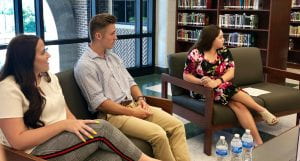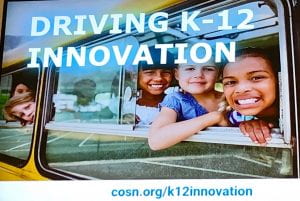“It always seems impossible until it’s done.”
– Nelson Mandela

Listen to a recent episode of my podcast featuring question and answers from Tennessee high school students in Wilson County, just outside of Nashville — they are part of a multi-year pilot of Bio Tech programming. Their insights are outstanding; they highlight the impact of their teacher (and all teachers in general) and they offer ideas and insights for promoting and enhancing science and innovative learning!
One of the professional groups to which I belong and have a leadership role is the American Association of School Administrators (AASA). The AASA offers leadership support to superintendents and school district leaders around the USA and in Canada. One of the leadership development cohorts in  which I have participated and for which I serve as the national co-director is the Digital Consortium. The July 2019 visit was to the Nashville, TN area of Wilson County. There we toured a brand new middle school (state of the art), we met with the leaders of the Chamber of Commerce, and we interacted with teachers and students. In this podcast, we’re meeting with high school seniors and we’re discussing their Bio-Tech coursework and pathways and the impact that this innovative programming has had on them and their futures.
which I have participated and for which I serve as the national co-director is the Digital Consortium. The July 2019 visit was to the Nashville, TN area of Wilson County. There we toured a brand new middle school (state of the art), we met with the leaders of the Chamber of Commerce, and we interacted with teachers and students. In this podcast, we’re meeting with high school seniors and we’re discussing their Bio-Tech coursework and pathways and the impact that this innovative programming has had on them and their futures.
The purpose of the AASA Digital Consortium is to support school district administrators as they scale successful models in support of engaging, effective learning experiences using digital media in order to be the leading national voice for digital innovation in our nation’s public schools.
Focus Areas:
Experience innovation in schools, technology, and industry partnerships Engage/observe best practice in digital leadership Reinforce purpose and outcomes for the Digital Consortium Advance AASA’s goal to reinforce equity for all students
Essential Questions:
How do your programs prepare students to be successful in their local and/or global economy? How can technology pair with the concept of personalized learning to change teaching and learning in our schools? How can opportunities to innovate for both children and adults strengthen the local economy?
